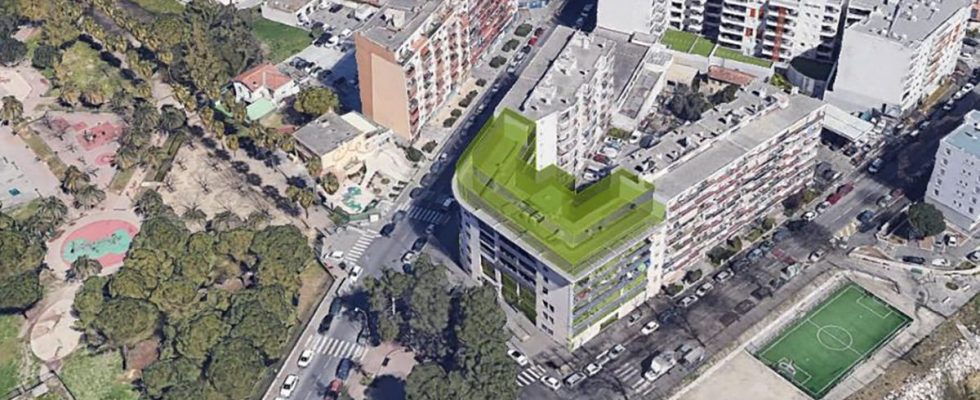Rather than expanding horizontally, due to lack of available land, the real estate stock of the fifth city in France (and among the most expensive) could increase in height. According to a study presented this Monday by the city of Nice, some 7,750 new apartments can potentially be built by replacing the existing ones. Nearly half of which is for social housing, which currently represents 14% of local supply, still far from the 25% required by the Solidarity and Urban Renewal (SRU) law.
In total, the specialized company Upfactor has identified 5,000 buildings that are “legally elevable”, or “61,600 potential housing units to be created” but has revised this figure downwards to meet several criteria. That the buildings concerned, “close to public transport”, present “significant heat losses”. And that the selected projects, which would thus benefit from insulation work, can offer at least 400 m2 more while ensuring “good urban integration”. That is to say without going beyond one or two additional floors.
For the energy renovation of buildings
According to the summary presented by Upfactor, in detail, 179 buildings belonging to social landlords could gain 2,000 new housing units and 79 establishments open to the public (ERP) would also be likely to accommodate 2,000 more.
Of the 255 co-ownerships also identified, Upfactor is planning another 3,750 additional apartments. So many constructions which would ultimately make it possible to finance the 260 million euros which should be invested in the energy renovation of these buildings. In this private park, “it is not imposed, it is possible,” said Mayor (Horizons) Christian Estrosi. But, for the public, discussions have already been launched with donors and a pilot project should even be presented at the beginning of 2024.
An “incomprehensible tolerance on the part of the State” on social housing
“All the levers available are mobilized to maintain a dynamic of production of affordable housing for all”, supports the community, the mayor specifying that “the rate of social housing had increased from 11% in 2008 to nearly 14% in 2022.” Far from being sufficient with regard to the SRU law (which therefore imposes a minimum of 25%) and yet Nice was the subject of “an ‘incomprehensible tolerance’ on the part of the State”, recently denounced the Abbé Pierre Foundation.
Justice is also seeking to know why the city has regularly escaped the fines provided for in the texts. The National Financial Prosecutor’s Office has been investigating suspicions of “corruption and all related offenses relating to the financial consequences of non-compliance with the SRU law” since 2022.
The community argues for its part that it has “managed to no longer pay penalties, from 2010 to 2021, in particular thanks to efforts to produce social housing supported by annual investments”. She specifies that she paid 400,000 euros in 2021 and 1.8 million euros in 2022, “in view of the 2020 operations slowed down by Covid”. And also ensures that “the 2023 penalty was neutralized thanks to aid paid to social landlords of 6 million euros in 2021 and property losses”.

